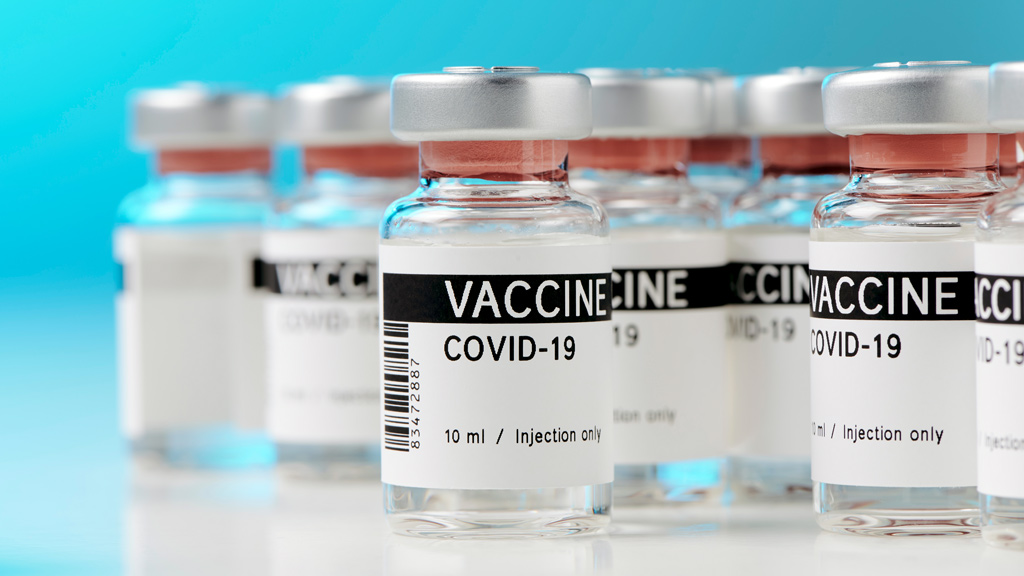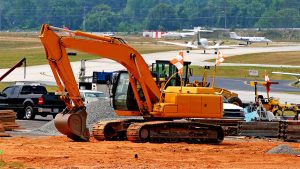With at least two COVID-19 vaccines approved for use in Canada, debate about whether employers can force employees to get a needle could become a prickly topic. Unlike health-care workers, construction industry employees work in a far different environment, a factor that will likely influence decisions around forced vaccinations.
Past practice has been that employers cannot compel employees to be vaccinated. As well, individuals have the right to make decisions about their bodies, while on the other side, employers are to ensure a safe workplace.
“I really doubt that employers will be able to make the vaccine mandatory,” said Chris Atchison, president of the B.C. Construction Association. His reasoning is based on Health Canada’s decision not to make the vaccine mandatory, as well as provincial health authorities that are taking the same route while encouraging Canadians to get vaccinated.
Yet, Atchison points to construction’s role as an influencer and what that means. “We can strongly encourage ourselves, our members, our industry to line up with health-care employees to stifle COVID-19,” he said. Atchison expects most workers in the industry will get a vaccine, noting the industry’s emphasis on safe workplaces. “From the early days of the pandemic, we’ve been able to respond due to the culture of safety,” he said.
To reinforce the philosophy, in April, during BCCA’s Construction and Skilled Trades month, the plan is to have COVID-19 vaccine clinics at several locations, but only if vaccines are available. “We’re waiting our turn,” Atchison said.
In Western Canada, the construction industry has fared relatively well during the pandemic. In B.C., in late September, there was only one known case of COVID-19 among construction workers. That changed in December when cases began to surface at sites related to the Coastal GasLink pipeline project, at the LNG project in Kitimat and a new hospital site in Kamloops. As well, BC Hydro’s Site C dam and Rio Tinto’s Kemano T2 project have had outbreaks.
In Manitoba, there were five cases at the Roquette Canada project in Portage la Prairie in November. In Alberta, WCB claims for COVID-19 were at the near-bottom of the claims list with 60 at the end of November.
In Saskatchewan, in mid-December, there were no recorded outbreaks of COVID-19 on construction sites, said the president of the Saskatchewan Construction Safety Association.
“Almost on a daily basis, we get new directives from the health authorities,” said Collin Pullar. “We hope companies stay diligent and disciplined with practices.”
When it comes to mandatory vaccines as one practice, Pullar said it’s a difficult tightrope to walk.
it’s likely to be upheld as long as the employer accommodates disabilities or religious beliefs,
— Eric Tucker
York University
“It’s a whole lot different to ask someone to put something into your body versus putting something on your body,” he noted.
But as time passes, the vaccines’ efficacy and safety will be tested and if broad safety concerns don’t arise, Pullar expects his members will be open to vaccines. If so, debate around mandatory vaccines could be null and void. “If high adoption, it may not necessitate full action,” he said. And for those who say no, the ongoing use of PPE will be expected.
Pullar notes that the federal government’s move to implement a Canada-wide no-fault vaccine program, that will provide support to those who have an adverse reaction to a vaccine, is a good policy. Such a program has been in place in Quebec for over 30 years.
An expert in occupational health and safety regulations and labour and employment law said no case law exists for a mandatory COVID-19 vaccine.
“It’s all speculative,” said Eric Tucker, a law professor at York University’s Osgoode Hall.
For the construction industry, the Canadian Charter of Rights and Freedoms isn’t a factor because it doesn’t apply to private sector employees, Tucker said. But within non-union workplaces, human rights codes could provide protection to employees who refuse a vaccine on the grounds of disability/medical reasons or religious beliefs.
Assuming the vaccine policy was created in good faith, but still targets a group, means the employer has to accommodate those who refuse a vaccine to the point of undue hardship, Tucker said.
The question then becomes what accommodations are required. “For a construction employee, can work be arranged in a way that the individual not vaccinated is not at risk to spread it? Can the person effectively be isolated?”
Work settings become a factor, especially when employees are housed in communal sites. Employers then have to consider the financial risk-benefit of sick employees and the possible financial expense that could result from an outbreak.
In a unionized setting, if an employer adopts a policy stating that employees must get vaccinated, the union can grieve the policy, Tucker said. Management has the right to manage, subject to the collective agreement, but management rights must be exercised fairly and reasonably. “They have to achieve balance between privacy, dignity and fair treatment,” Tucker said.
He likened it to mandatory drug testing, where arbitrators generally take the view that employers cannot unilaterally conduct such testing. It involves significant intrusive and invasive tests (blood/urine). And an employer needs justification to do it, such as serious workplace drug use, individuals returning from rehabilitation or a recent accident and suspicions that it was drug related.
In the case of vaccines, arbitrators would have to consider how serious the risks were to workers and the risk of transmission to others. Because much of construction work is outside, risks are low.
If a union employer adopts a vaccine policy and an employee refuses to submit, the employer could say they don’t allow the worker on the site and they don’t get paid if they don’t work, Tucker said.
“To the extent that employers adopt a mandatory vaccine policy in circumstances to prevent or reduce the risk of workplace infection, it’s likely to be upheld as long as the employer accommodates disabilities or religious beliefs,” Tucker said.
In late December, Optimity, a Canadian technology company focused on health, surveyed almost 31,000 Canadians, aged 15 and up. Almost 60 percent were concerned about long and short-term effects of a COVID-19 vaccine, while 26 per cent had no worries. Still, 63 per cent said they’d get a vaccine, 22 per cent were undecided and 11 per cent would say no. Of those declining, 41 per cent cited insufficient research while 18 per cent said pre-existing conditions or allergic reactions would stop them.
As well, 43 per cent of respondents believe all Canadians should have to get the needle while 29 per cent didn’t think it should be mandatory.











Recent Comments
comments for this post are closed